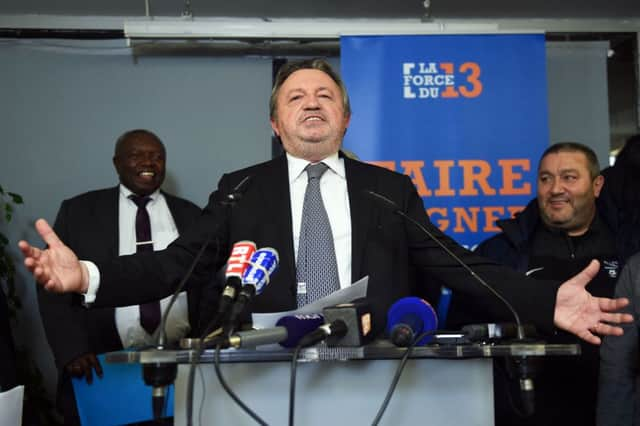Egypt, Ethiopia and Sudan sign Nile River deal


The move follows years of rising tensions over plans by the Ethiopian government to construct a massive new dam it hopes will help alleviate some of its electricity shortages, which threatened to lead to war just two years ago.
Egyptian president Abdel-Fattah el-Sissi, Sudanese president Omar Bashir and Ethiopian prime minister Hailemariam Desalegn welcomed the agreement in speeches in Khartoum’s Republican Palace yesterday.
Advertisement
Hide AdAdvertisement
Hide AdThey earlier watched a short film about the Grand Renaissance Dam that highlighted how it could benefit the region. Officials from the three countries hammered out the agreement in recent talks in Khartoum.
“I confirm the construction of the Renaissance Dam will not cause any damage to our three states and especially to the Egyptian people,” Mr Desalegn said at the signing ceremony.
Ethiopia claims the dam will allow it to reclaim its fair share of Nile water, but the $4.2 billion (£2.8bn) hydroelectric project has raised fears in Egypt over shortages. The Nile provides almost all of the desert nation’s water needs.
Colonial-era treaties dating back to 1929 and 1959 have until now given Sudan and Egypt the legal right to an 87 per cent share of Nile water, as well as a veto power over any upstream projects in neighbouring countries.
A previous effort to break the deadlock in 2010, dubbed the Nile Basin Initiative, attempted to agree an end to the veto power but collapsed when Sudan and Egypt refused to sign.
In a controversial move in 2013, Ethiopia began work to divert the Blue Nile, one of the river’s two major tributaries, without informing its neighbours.
The unilateral step prompted Egypt’s then president, Mohamed Morsi, to say that while he wanted to avoid a war over the world’s longest river, he would not allow his country’s water supply to be endangered by the dam. At the height of the tensions, Ethiopian politicians were overheard in a TV broadcast proposing to take military action over the dam.
Ethiopia now wants to replace a 1929 treaty, written by the region’s British former colonial masters, that awarded veto power over any upstream projects on the Nile to Egypt.
Advertisement
Hide AdAdvertisement
Hide AdMr Morsi’s successor signed the deal yesterday but added that Egyptians still feared the potential impact of the dam.
Mr el-Sissi said: “The Renaissance Dam project represents a source of development for the millions of Ethiopia’s citizens through producing green and sustainable energy, but for their brothers living on the banks of that very Nile in Egypt, and who approximately equal them in numbers, it represents a source of concern and worry.
“This is because the Nile is their only source of water, in fact their source of life.”
Egypt’s National Planning Institute estimates the country’s population will reach 150 million by 2050, meaning it will need an additional 21 billion cubic metres of water per year to meet its projected demands.
Ethiopia says the dam will eventually provide 6,000 megawatts when it is completed in 2017, and that the Blue Nile will be allowed to resume its natural course. Other upstream Nile basin countries have given their backing to Ethiopia’s stance, including Rwanda, Tanzania, Uganda, Kenya and Burundi.